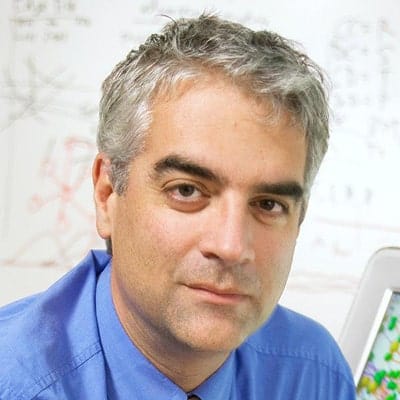Nicholas A. Christakis is leading the Microbiome Biology and Social Networks in the Developing World project. He is the Sterling Professor of Social and Natural Science at Yale University (New Haven, US) with appointments in the Departments of Sociology, Medicine, Biomedical Engineering, Evolutionary Biology, and Data Science.
Born in the US, Christakis obtained a BS in biology from Yale University in 1984. He received an MD from Harvard Medical School (Boston, US) and an MPH from the Harvard School of Public Health in 1989, winning the Bowdoin Prize on graduation. In 1991 Christakis completed a residency and fellowship in internal medicine at the University of Pennsylvania. He obtained a PhD in sociology from the University of Pennsylvania in 1995. He then joined the faculty of the University of Chicago as an assistant professor of sociology and medicine. From 2001-2013 he was professor of medical sociology in the Department of Health Care Policy at Harvard University; professor of medicine in the Department of Medicine at Harvard Medical School; and professor of sociology in the Department of Sociology in the Harvard Faculty of Arts and Sciences. In 2013 Christakis moved to Yale University, serving as the Sol Goldman Family Professor of Social and Natural Science until 2018. At Yale, he is the Director of the Human Nature Lab and Co-Director of the Yale Institute for Network Science. He is the author, in 2019, of Blueprint: The Evolutionary Origins of a Good Society.
Christakis’ laboratory investigates the social, mathematical, and biological rules governing how social networks form and the social and biological implications of how they operate to affect human lives. His laboratory exploits techniques from biosocial science, sociology, computer science, demography, statistics, behavior genetics, evolutionary biology, epidemiology and other fields. His NOMIS project seeks to answer fundamental questions about the two-way relationship of human social connections in the form of face-to-face networks and the many species of bacteria that colonize our own species.




